Romantic films from directors like Makoto Shinkai and Yoshimitsu Morita showcase the best of Japanese cinema. It's a part of Asian entertainment that has seen a recent rise in worldwide popularity along with K-dramas. Similar to romantic K-dramas, many Japanese romance films employ some of the most popular tropes in romance, such as love at first sight and love triangles. These tropes allow all audiences to connect with the foreign films' stories.
Despite being seen in numerous films before, the way these tropes are integrated into the plot also helps the films to feel entirely brand new. Sky of Love and Shall We Dance? are some of the more well-known examples of Japanese romance films, but there are a few other picks that are worth a watch for romance fans. From stunning animation to live-action dramas, there's a Japanese romance film for everyone.
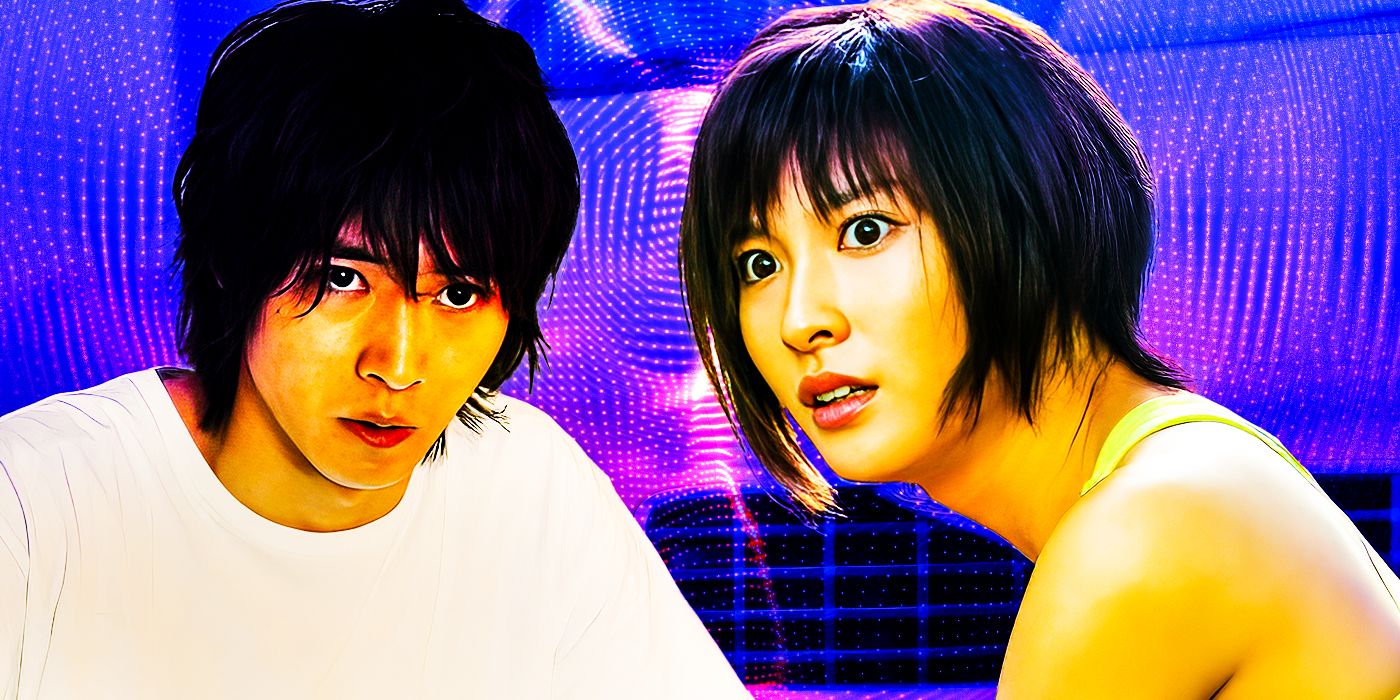
Related
Netflix’s 10 Best Live-Action Japanese Shows, Ranked
Netflix offers a diverse array of content from Japan, but its live-action TV series stand out as some of the platform's top offerings.
15 Love Life (2022)
Directed By Koji Fukada

The Japanese romance movie Love Life arrived in 2024, and comes from director Koji Fukada, who also wrote the script. While an original story, the plot of Love Life is heavily inspired by the song of the same name by Japanese jazz musician and pop singer Akiko Yano. Love Life is an interesting love story for many reasons, and many of its curious aspects tie into how the story is told. While it's a tragic tale in many places, the tone of Love Life is incredibly surreal and almost dream-like in places, juxtaposing the events of the narrative incredibly effectively.
The plot of Love Life focuses on Taeko (Fumino Kimura). At the start of the film, she is happily married to her second husband, Jiro (Kento Nagayama). However, she has a son with Park Shinji (Atom Sunada), who she hasn't seen for years but reconnects with during the first act. Since last seeing him, Park has become deaf, incredibly unwell, and is sleeping on the streets. Taeko decides to care for him, and in reconnecting due to his vulnerability, finds a wealth of complex feelings emerge.
14 Ride Or Die (2021)
Directed By Ryuichi Hiroki
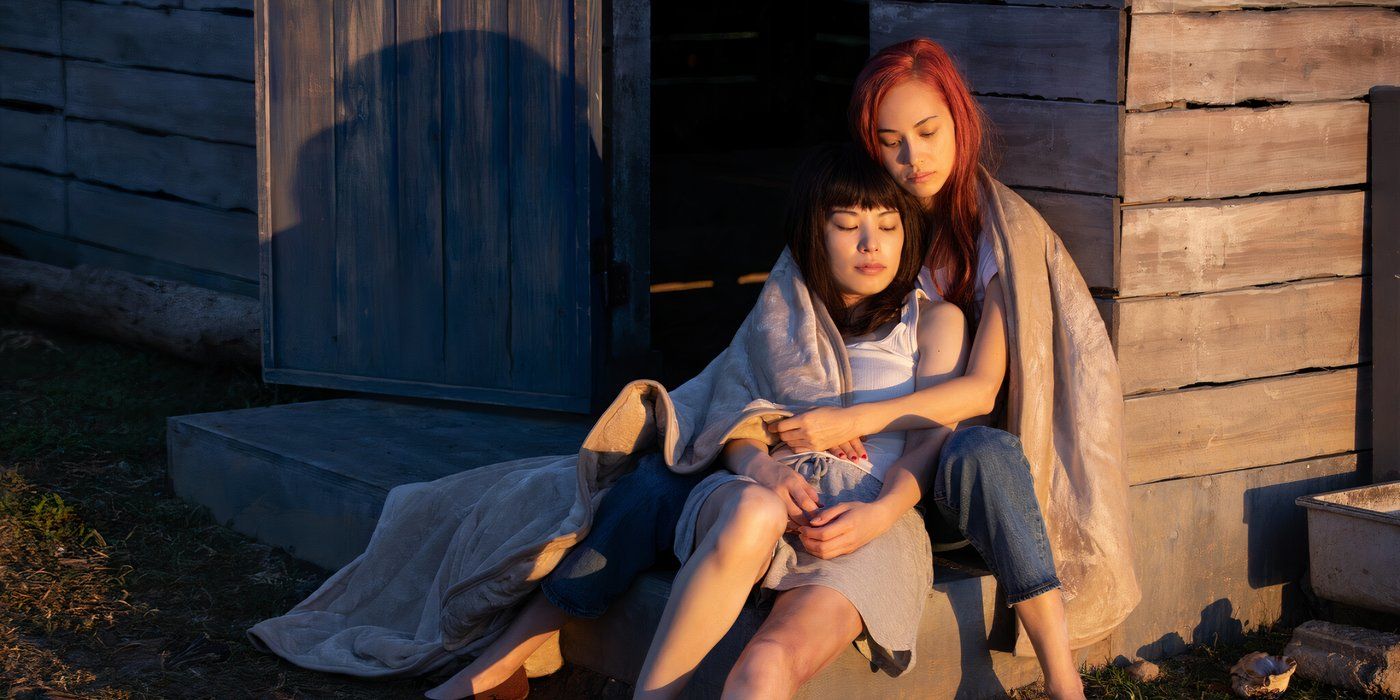
2021's Ride Or Die is a thriller as much as it is a romance. Released as Kanojo in Japan and directed by Ryuichi Hirko, Ride of Die is based on the manga Gunjo by Ching Nakamura, Ride Or Die stands out among Japanese romance movies for several reasons, including that it's an important example of LGBTQ+ representation. The central romance of Ride Or Die is between Rei (Kiko Mizuhara) and her childhood crush, Nanae (Honami Sato).
Rei reconnects with Nanae after learning Nane's husband is subjecting her to a campaign of brutal abuse. Nanae and Rei develop a romantic bond, though this is thrown into disarray after Rae kills Nanae's spouse. Intended as a gesture of affection, the murder instead makes things harder for the pair than ever. This is where the thriller aspects of Ride Or Die emerge, though the balance it strikes between romance and drama is masterful.
13 Love And Other Cults (2017)
Directed By Eiji Uchida
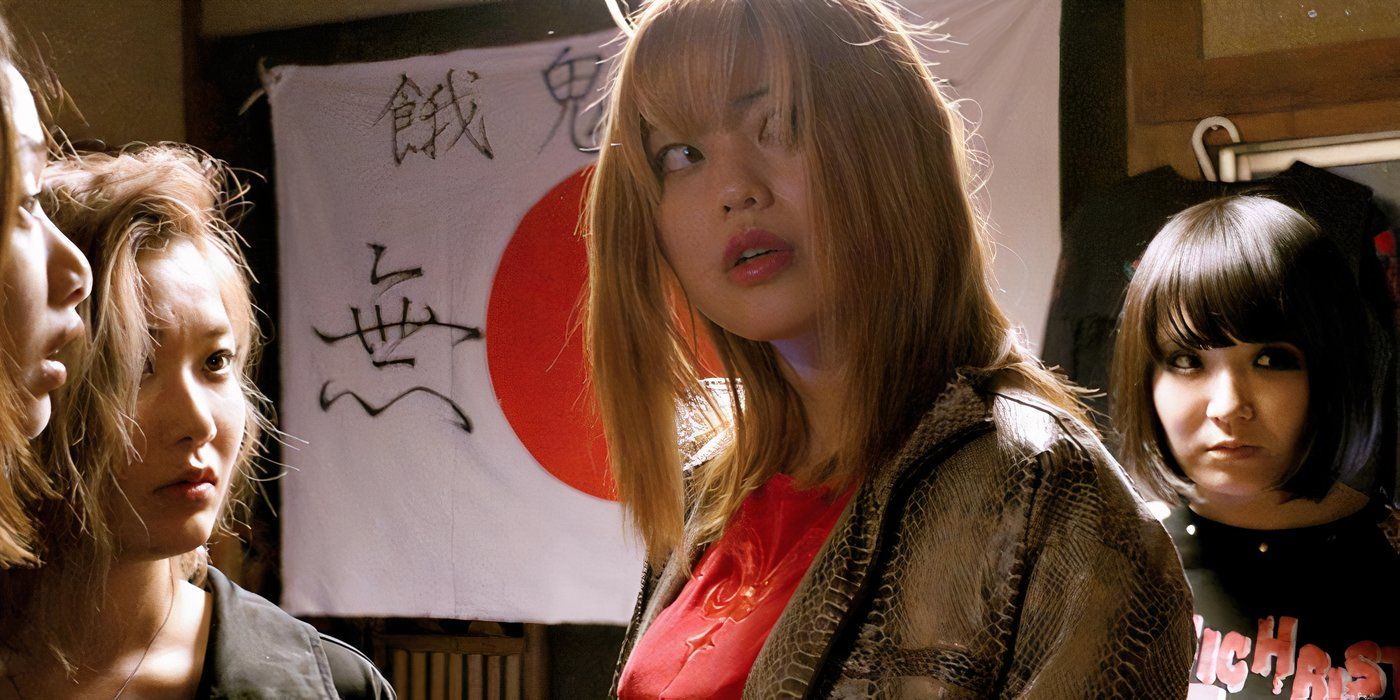
2017's Love and Other Cults (released in Japan as Kemonomichi) is definitely among the stranger Japanese romance movies, though it's also one which has an incredible amount of emotional depth. The story focuses on Ai (Sairi Ito), a young girl who is sent by her mother to live with a cult on their commune at the age of 7. However, once the cult is disbanded by the police, Ai finds herself out in the real world at a regular middle school.
Love and Other Cults was praised for many reasons, especially how much director Eiji Uchida chose to focus on themes like grief, loss, resentment, and trauma. However, it's a romance story at its heart, with Ai finding solace in fellow social outcast Ryota (Kenta Suga). As the pair grow older they both find themselves in increasingly dire living situations, though their respective struggles only lead Ai and Ryota closer together.
12 My Tomorrow, Your Yesterday (2016)
Directed By Takahiro Miki
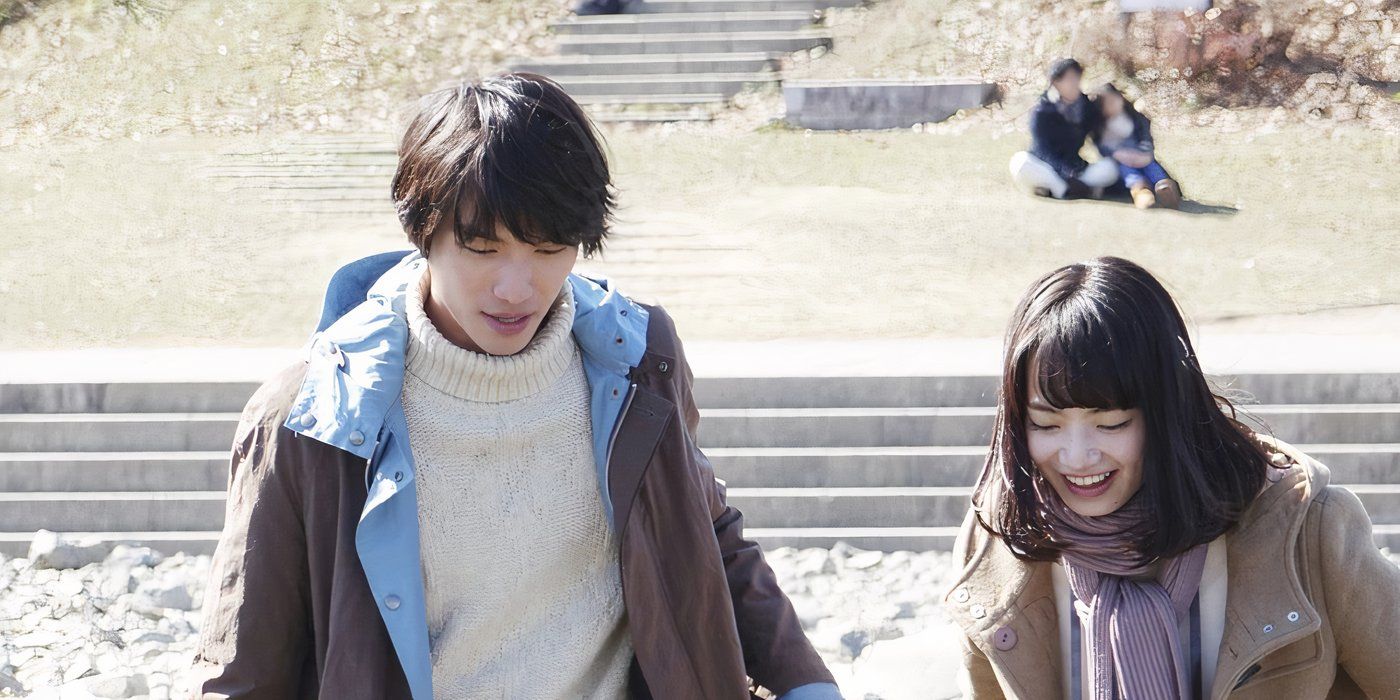
Released as Boku wa Asau, Kino no Kimi to Deto Suru in Japan, 2016's My Tomorrow, Your Yesterday is a unique sci-fi romance by director Takahiro Miki. The central couple are Takatoshi (Sota Fukushi) and Emi (Nana Komatsu), who fall in love at first sight when they meet in their 20s. However, after their first night together, Takatoshi discovers Emi's journal and learns that - much to his dismay - she experiences time backwards and ages in reverse.
Emi already knew who he is prior to their 'first' meeting, and has memories of events from Takatoshi's youth Determined to make the relationship work, Takatoshi decides to still pursue his connection with Emi. There are many problems, however. Firstly, Emi reveals they can only be together for one month every five years, and the current period is the only time they'll be the same age. My Tomorrow, Your Yesterday becomes incredibly tragic by the end, but also is an exploration of how true love can overcome any obstacle.
11 From Me To You (2010)
Directed By Naoto Kumazawa
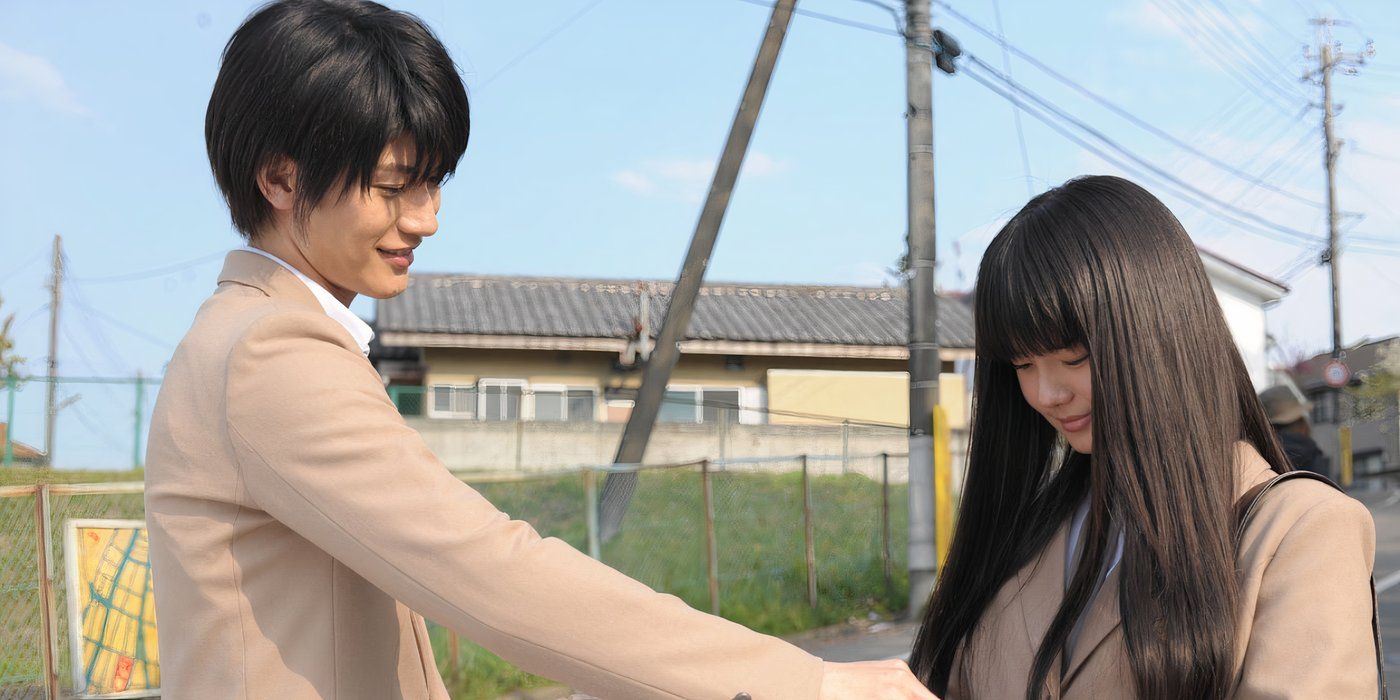
Also known as Kimi ni todoke, From Me To You is based on the manga of the same name and was adapted by director Naoto Kumazawa. Fans of The Ring will find this Japanese romance movie particularly endearing, because a key plot point is how central character Sawako Kuronuma (Mikako Tabe) is relentlessly teased for looking like Sadako, the dead girl in the hit J-Horror film series.
In many ways, From Me To You is the Japanese take on traditional highschool romance movies. Sawako is insular and unsure of herself until she catches the eye of Shota Kazehaya (Harumi Miura). The most popular boy in school, learning that Shota has been in love with her for years helps Sawako come out of her shell. Of course, their relationship has many bumps and obstacles along the way, but From Me To You has a heartwarming ending.
10 Be With You (2004)
Directed by Nobuhiro Doi
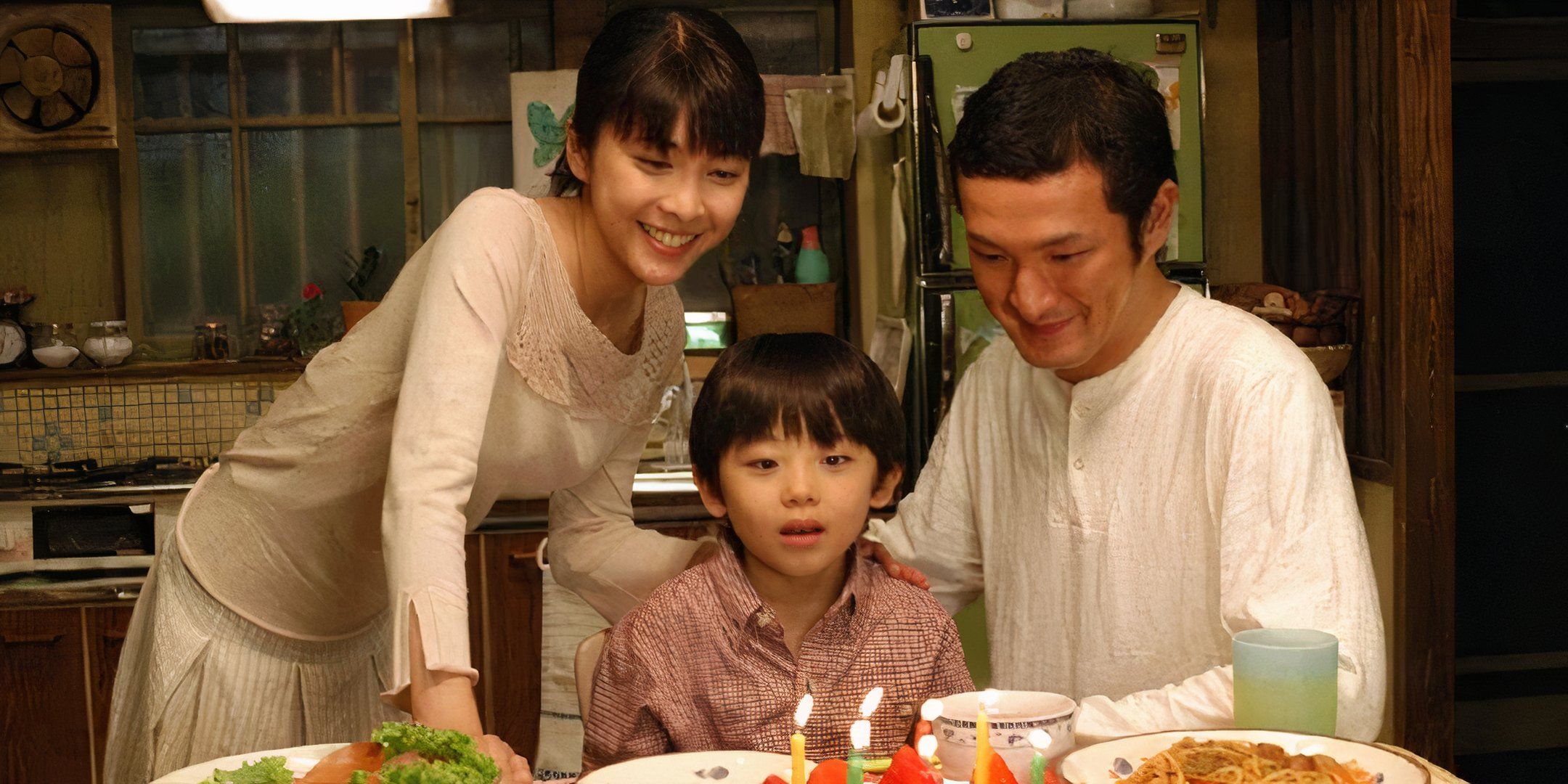
Combining the romance and fantasy genres, Be with You is a touching film about different types of love. After the death of his wife Mio (Yūko Takeuchi), Takumi (Shido Nakamura) and his son come across a woman who bears a strong resemblance to his recently deceased wife. Believing it's Mio, life for the family resumes back to normal. However, Mio doesn't have any of her memories.
When Takumi recalls the early days of his relationship with Mio, Be with You is at its most heartfelt. Nakamura and Takeuchi give strong performances throughout and are entirely believable as the reunited couple. As much love as there is between the family in Be with You, there are still fantasy elements. Mio's unexplainable reappearance is a mystery to the characters within the film and to audiences watching. The well-written mystery and compelling love story complement one another, creating a must-see film.
9 Love Like The Falling Petals (2022)
Directed by Yoshihiro Fukagawa
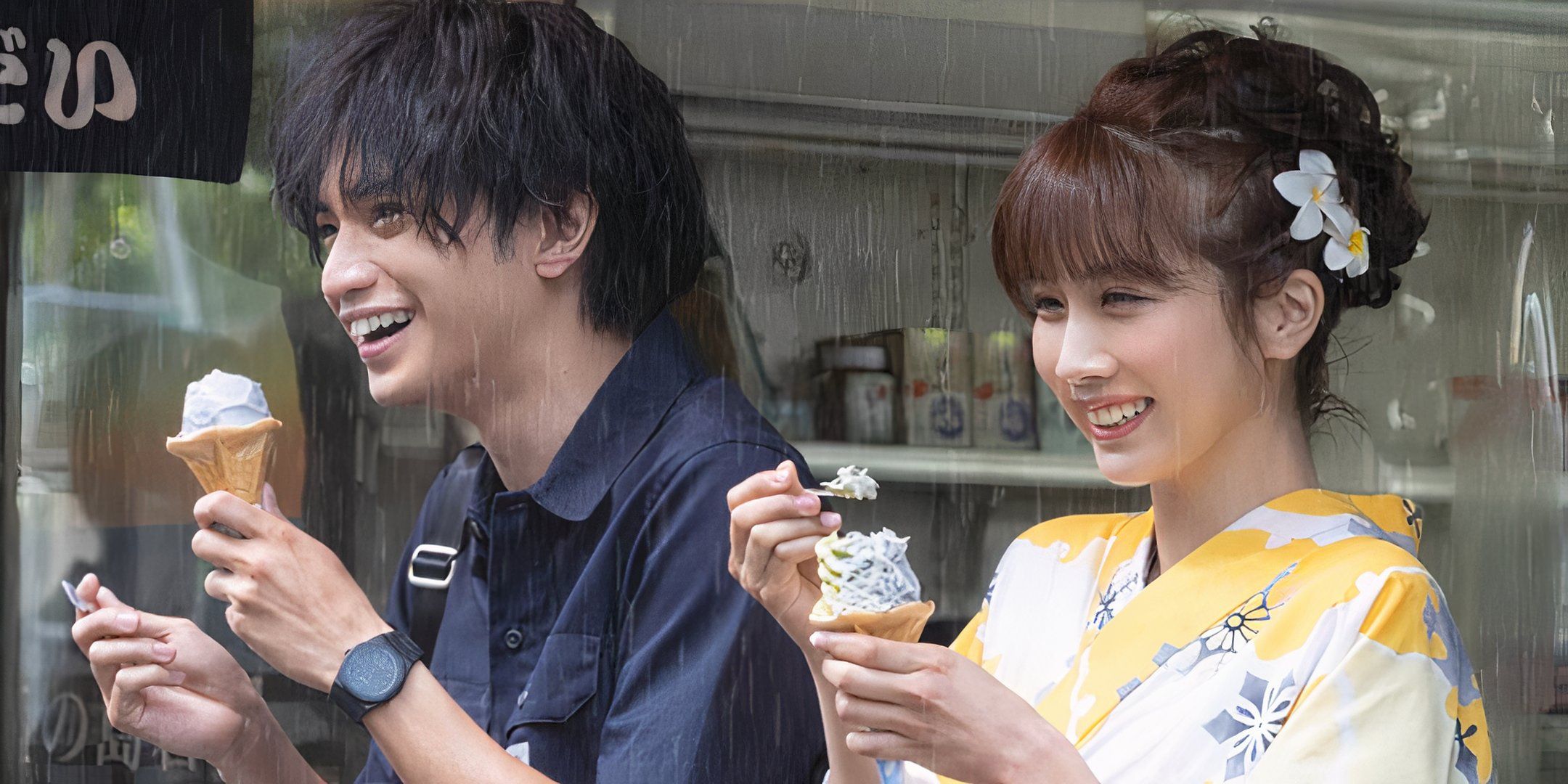
One of the more heartbreaking romance films listed, Love Like the Falling Petals follows the story of Haruto and Misaki. Love Like the Falling Petals has an emphasis on the sentiment that certain people are placed in one's life for a reason. The quick and effortless connection between Haruto and Misaki is believable and makes the heavier parts of the film all the more emotional.
Misaki is diagnosed with a disease that causes her to age rapidly and limits her time with Haruto. Love Like the Falling Petals has a runtime of approximately two hours and there are moments throughout where the film's pace drags a bit as audiences await a somewhat predictable ending. Still, there is a neat variety of scenes between the two romantic leads, capturing the enchantment that comes with a significant relationship and the heartbreak following its deterioration.
8 One Week Friends (2017)
Directed by Shōsuke Murakami
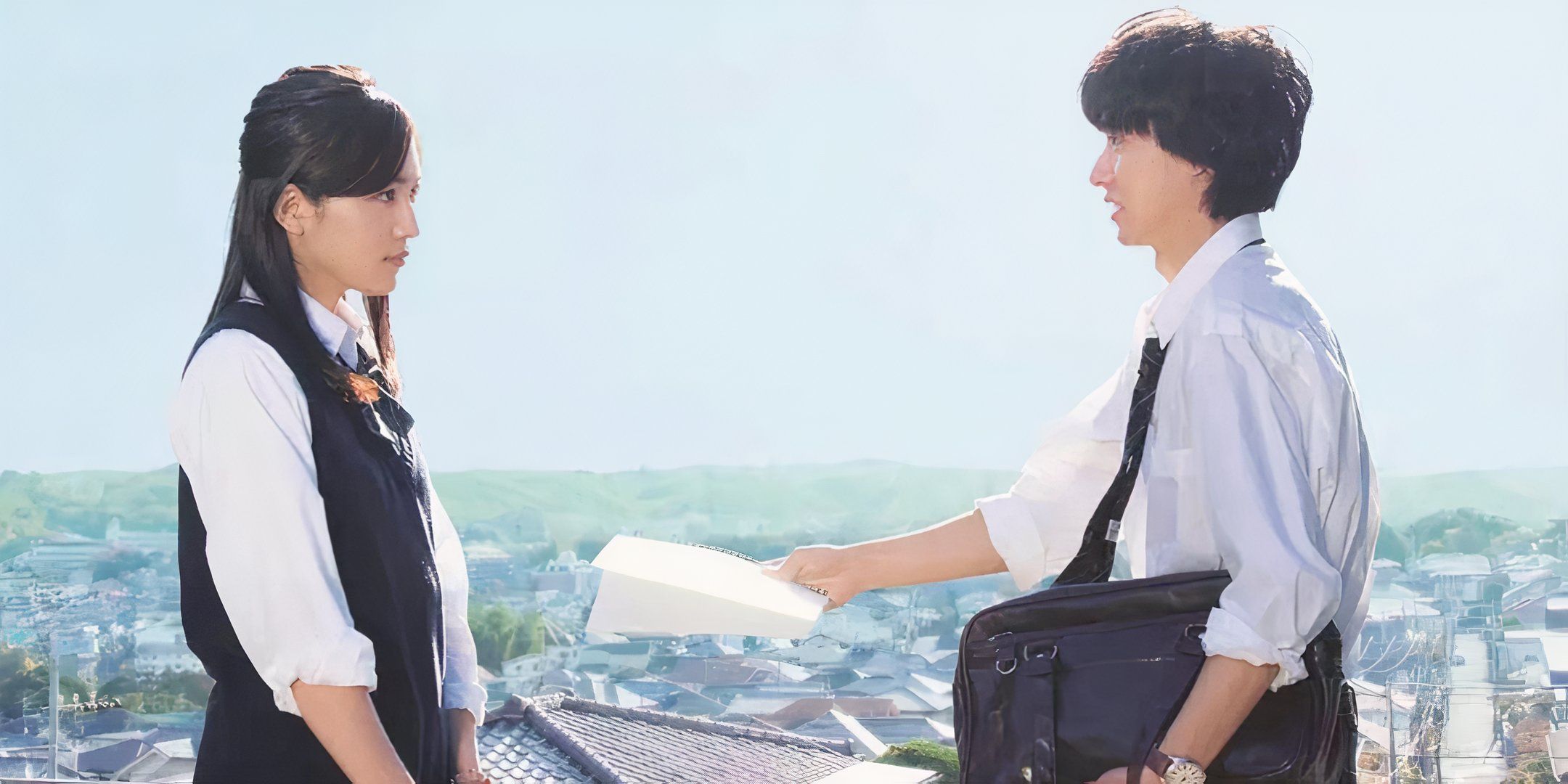
Starring Alice in Borderland's lead Kento Yamazaki, One Week Friends is centered around the formation of a unique friendship. One Week Friends gets its clever name from its main character, Kaori (Haruna Kawaguchi), who experiences amnesia that causes her to forget most people and events after one week. However, Yamazaki's Yuki is determined to become close to Kaori as he's romantically interested in her.
One Week Friends is the third adaptation of a manga series of the same name, following a television series and stage play. Though the story does have a heavier focus on Yuki and Kaori's budding friendship, there is still enough romance to satisfy audiences, particularly those looking for a realistic build. Both accomplished actors in their own right, Yamazaki and Kawaguchi work well on screen together and have great chemistry that contributes to their sweet scenes together.
7 The Liar And His Lover (2013)
Directed by Norihiro Koizumi
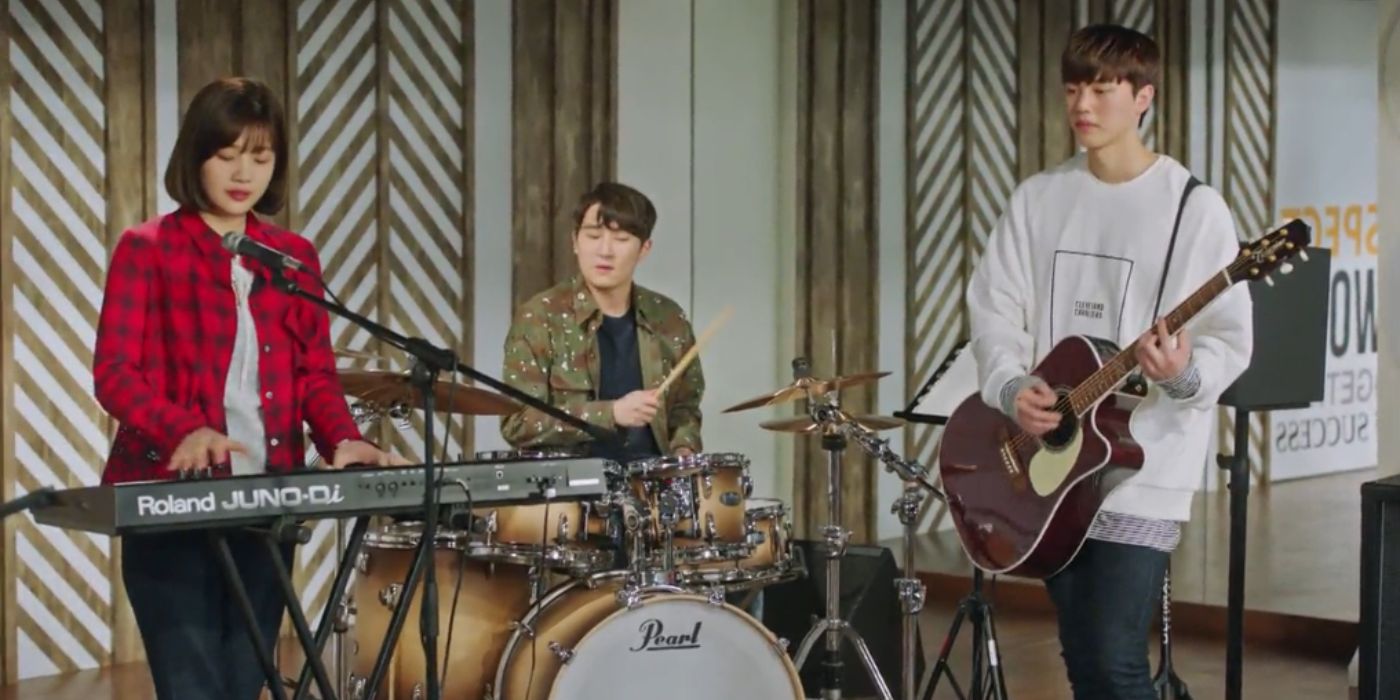
Quite a few romance films feature iconic couples with age gaps and The Liar and His Lover is one of them. Aki (Takeru Satoh) is a producer and musician who forms a relationship with a fan, Riko (Sakurako Ohara). For the two, it's love at first sight. Up until their meeting, Aki felt alone and lost in life, but feels seen by Riko. The Liar and His Lover uses a few romance tropes, but it results in a pleasant familiarity rather than feeling overdone and cliché.
Considering Aki is a musician, The Liar and His Lover also has a memorable soundtrack. Both Satoh and Ohara have experience in the music industry and lend their voices to the film's catchy songs. Additionally, The Liar and His Lover is based on Kotomi Aoki's manga series of the same name, which won the award for best Shōjo manga at the Shogakukan Manga Awards the same year of the film's release.
6 Initiation Love (2015)
Directed by Yukihiko Tsutsumi
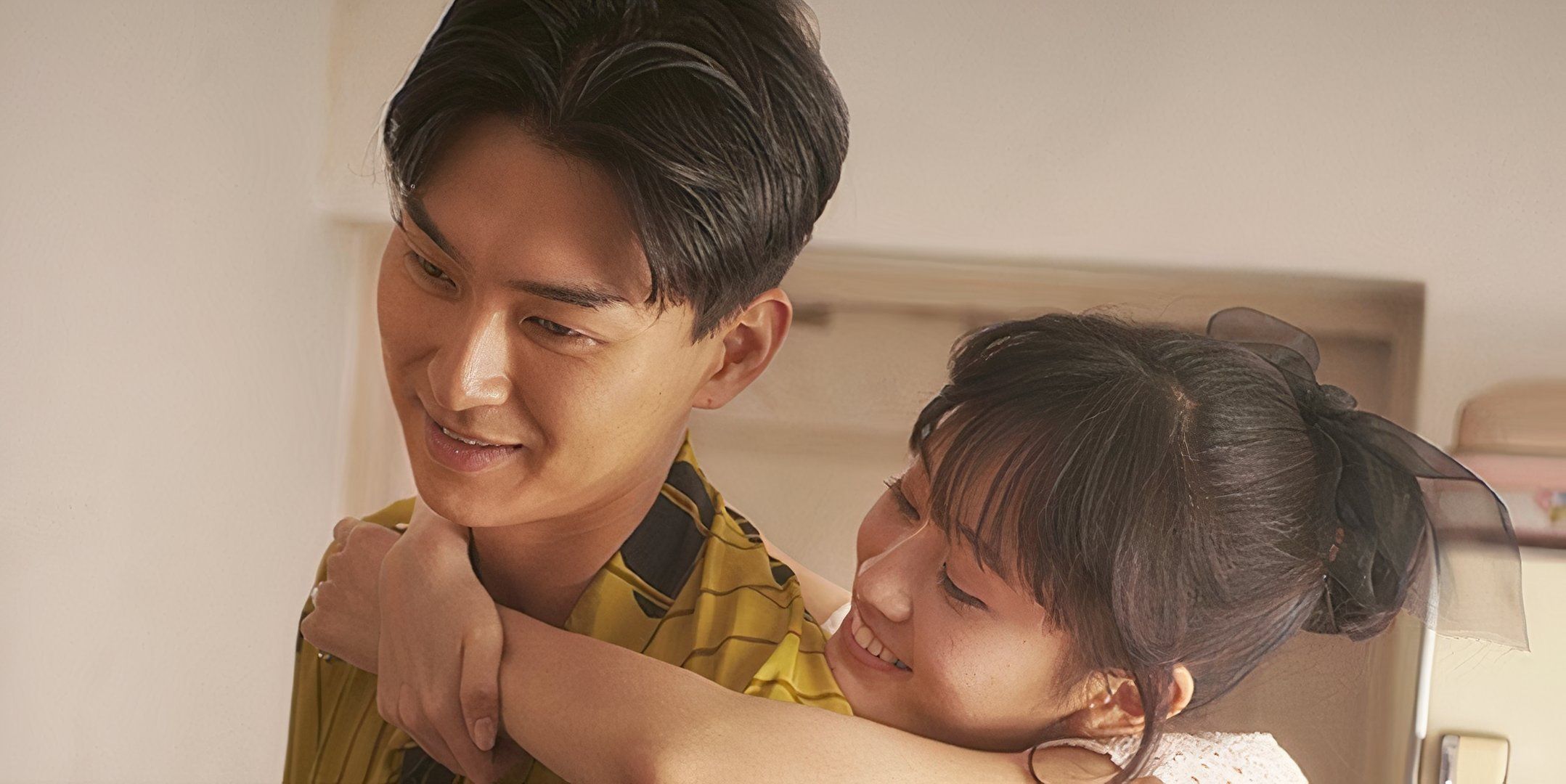
Though other Japanese romance films have put their twists on the genre, implementing aspects of fantasy and sci-fi, Initiation Love goes beyond this. Set in the '80s and based on a novel of the same name, Initiation Love begins as any ordinary romance film would where two individuals with opposing personalities meet one another and fall in love. However, distance puts a strain on the main couple's relationship — though the space between them isn't their biggest issue.
It's just not the sweet love story found in other films
Initiation Love's characters, while not entirely likable, are fascinating to follow and make it easy for audiences to remain engaged until the end. Initiation Love ends unexpectedly, and it's something that must be experienced with as little information beforehand. Despite Initiation Love leaning into its main mystery for a majority of the film, everything revolves around a romantic relationship. It's just not the sweet love story found in other films.
5 Sky Of Love (2007)
Directed by Natsuki Imai
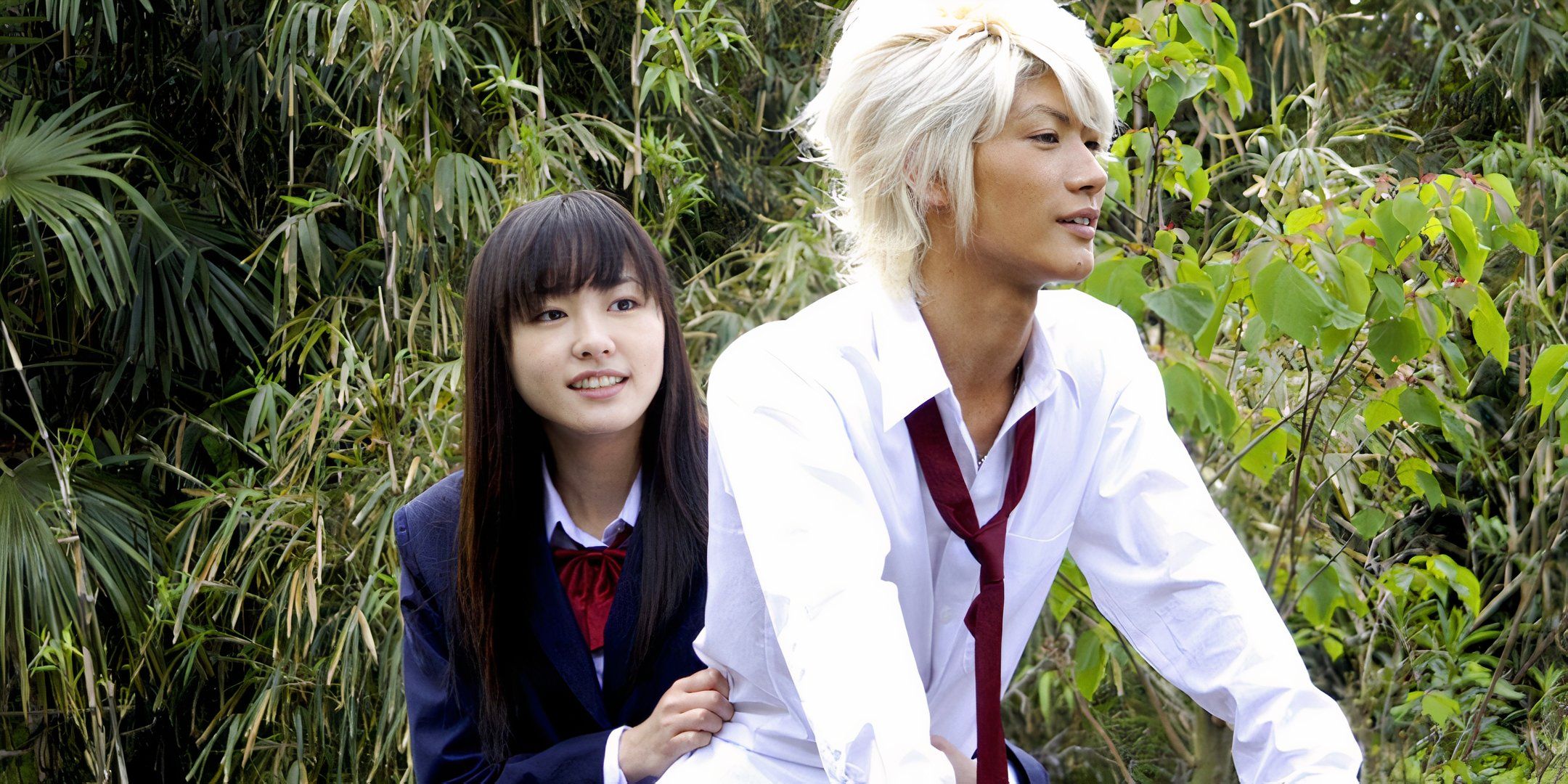
Equally heartfelt and sad, Sky of Love shows how the lives of two strangers intertwine after communicating anonymously through the phone. Classmates, Mika (Yui Aragaki) and Hiro (Haruma Miura) fall in love after meeting face-to-face, but like many romantic dramas, their relationship isn't without complications. Mika and Hiro experience it all. From other classmates trying to break them up to the tragic death of a loved one — the couple is continuously overcoming obstacles.
Sky of Love isn't the best romantic film to watch for audiences that seek a smooth, worry-free on-screen romance. Instead, Sky of Love introduces realistic setbacks for the couple. Because of its relatability and emotional weight, Sky of Love earned the third spot at the Japanese box office during its opening weekend. Sky of Love has also been given numerous awards, including four Best Newcomer awards for Aragaki.
4 Haru (1996)
Directed by Yoshimitsu Morita
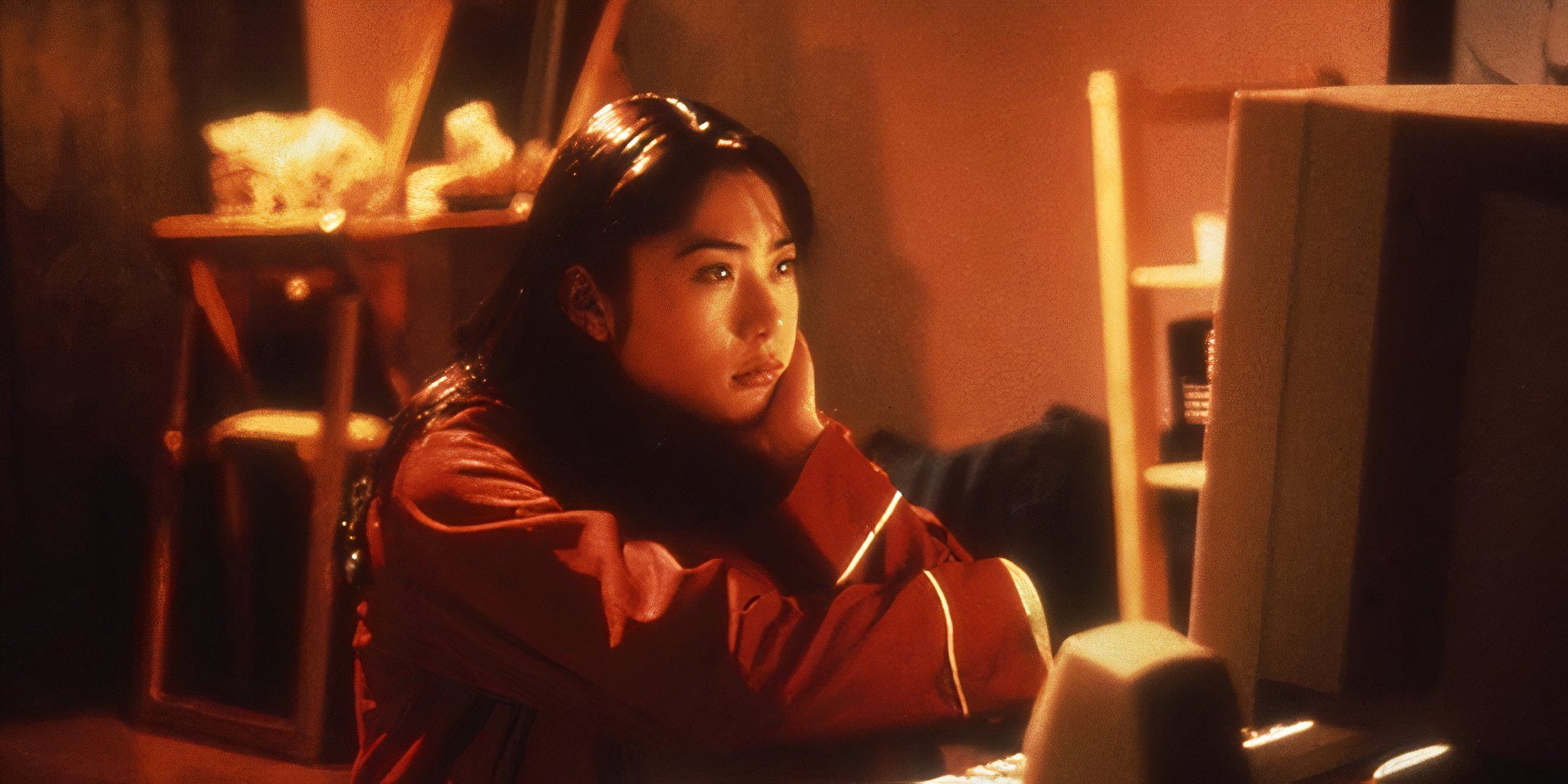
A few years before the release of Nora Ephron's You've Got Mail came Haru, a similar story about two people who form a connection through the internet. Haru is the handle of the male lead in the film who finds himself drawn to a person with the username "Hoshi." The online chatroom where the two exchange messages is dedicated to movies, though neither party is as passionate about films as they lead on.
It becomes clear the chatroom is a means of escape from the struggles and loneliness in their personal lives — details about their lives are not shared with one another and are only known to the audience. Haru's director, Yoshimitsu Morita, cleverly utilizes the early technology. Much of the film is spent looking at a blue screen with white text showing the exchanged online messages. Because of this, Haru is a quieter film, but one that perfectly captures how the early days of chatrooms allowed for deep connections without any face-to-face interactions.
3 Shall We Dance? (1996)
Directed by Masayuki Suo
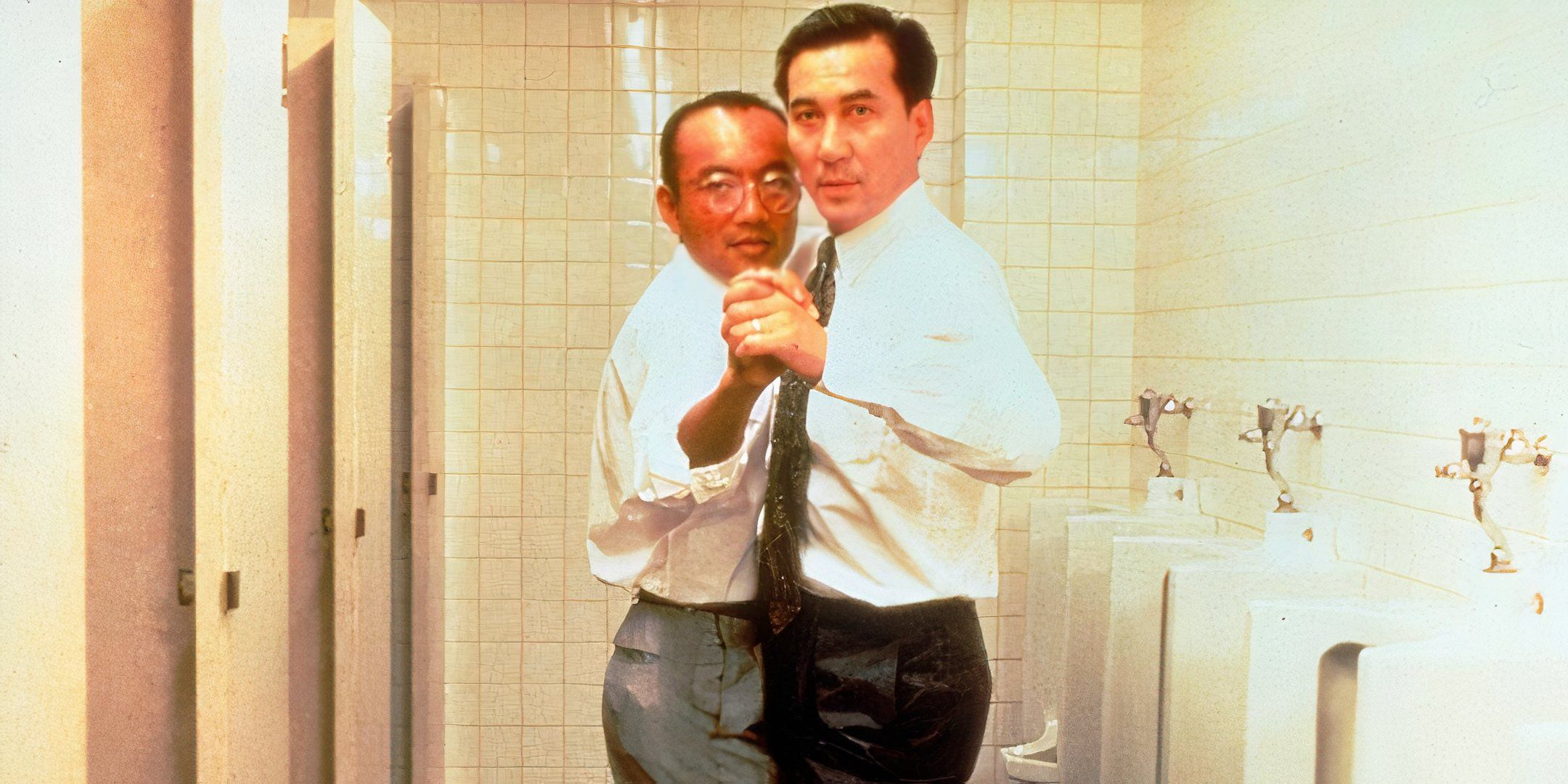
Koji Yakusho, known recently for his role in Perfect Days, is the lead in Shall We Dance? as Shohei Sugiyama. To escape the stress from his life, Shohei takes up ballroom dancing. It's a part of his life where he finds the most joy, but he keeps it hidden from those around him. Partaking in traditional ballroom dancing is seen as a humiliating activity by those around Shohei — an element of Japanese culture that helps Shall We Dance? feel original.
Shohei's relationship with his wife is an essential part of the overall narrative of Shall We Dance?. However, a majority of the film is focused on Shohei's other relationship. His relationship with dance. Coping with feeling lost in life, Shohei's dance classes help him find purpose and community. Masayuki Suo's Shall We Dance? has a one-of-a-kind charm that the 2004 remake largely lacked.
2 I Give My First Love To You (2009)
Directed by Takehiko Shinjo
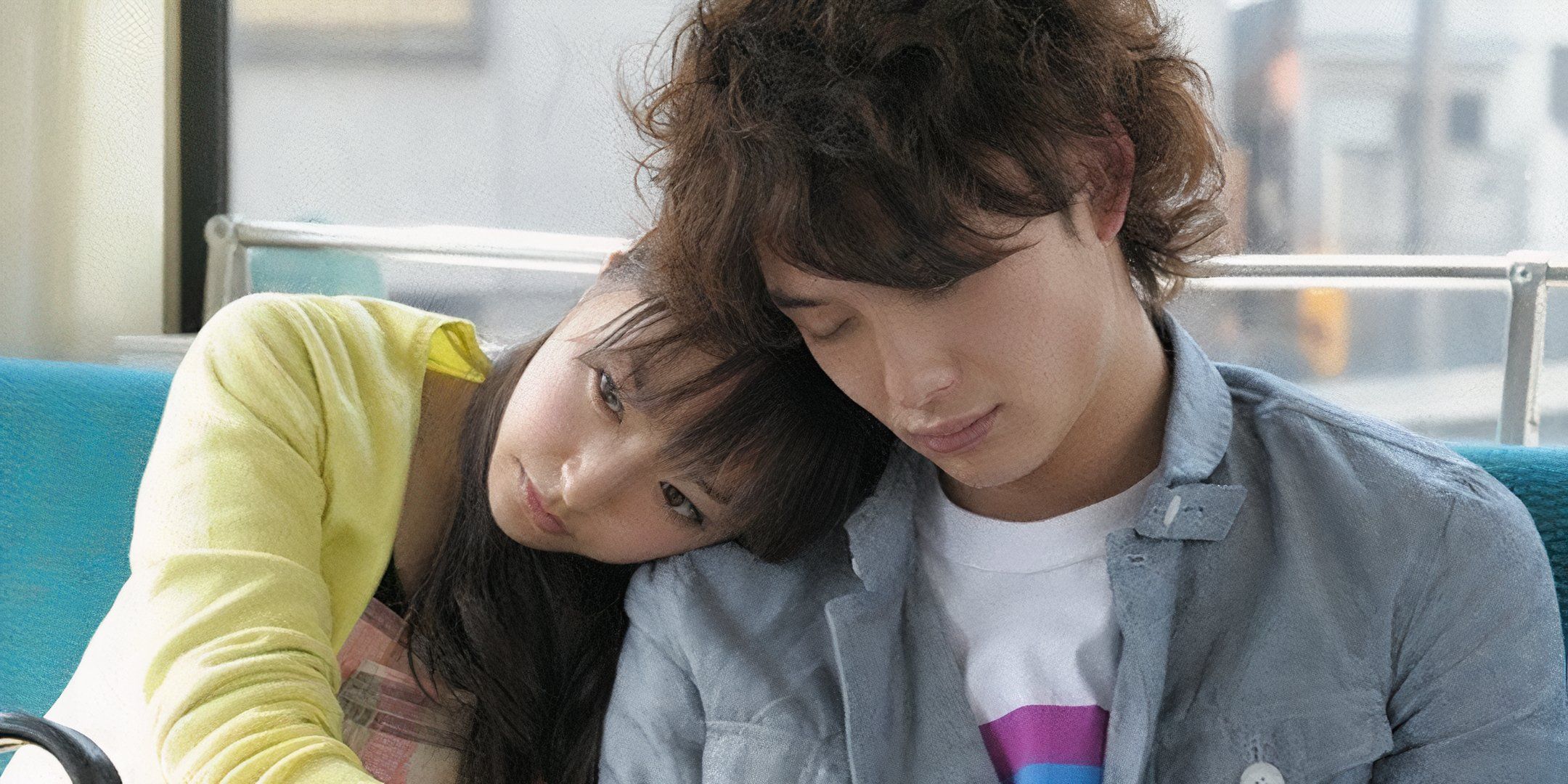
Based on Kotomi Aoki's manga of the same name, I Give My First Love to You is another heartbreaking drama. As the title suggests, the film revolves around young love. Having been friends since they were children, Mayu (Mao Inoue) and Takuma (Masaki Okada) make a promise to one another that they will get married when they turn 20. Unfortunately, their time is limited as Takuma has a heart condition that will not allow him to live past 20.
With the harrowing fate of their future in mind, Mayu and Takuma make the most of their time together. I Give My First Love to You follows the pair of friends throughout high school with their friendship being tested by others along the way. Audiences are aware of Takuma's life expectancy, so much of the heartbreak in I Give My First Love to You centers around the steps he takes to ensure Mayu will be okay after he passes.
1 Your Name (2016)
Directed by Makoto Shinkai
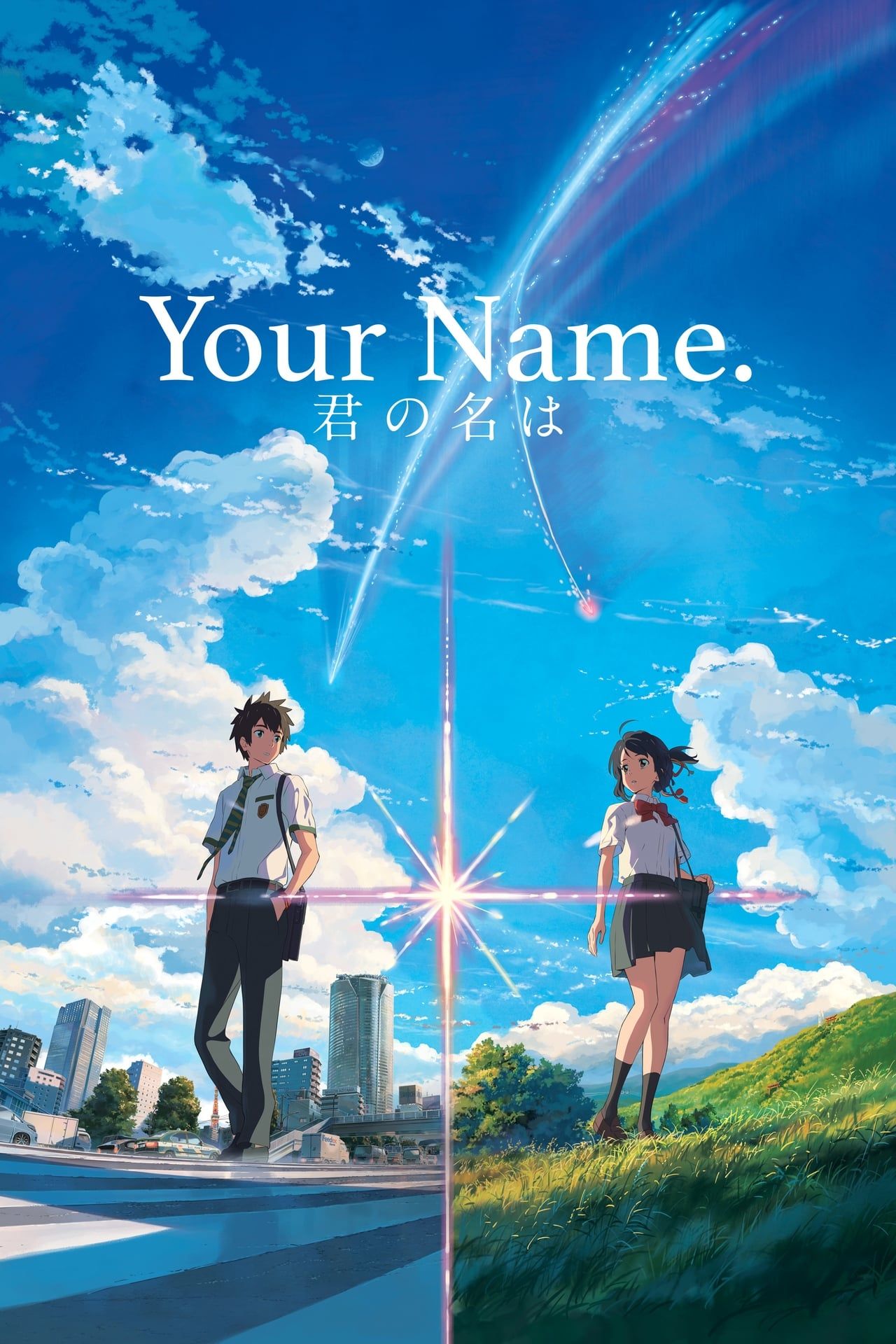
Your changes have been saved
Your Name is a 2016 animated film directed by Makoto Shinkai. The story centers around two high school students, Taki and Mitsuha, who inexplicably begin to swap bodies. Set in both Tokyo and a rural town, the film explores themes of identity and connection as the characters navigate their intertwined lives. Through its rich animation and poignant narrative, Your Name captivates audiences with its exploration of fate and self-discovery.
Director Makoto Shinkai
Release Date August 26, 2016
Cast Ryunosuke Kamiki (Taki Tachibana voice) , Mone Kamishiraishi (Mitsuha Miyamizu voice) , Ryo Narita (Katsuhiko Teshigawara voice) , Aoi Yuki (Sayaka Natori voice) , Nobunaga Shimazaki (Tsukasa Fujii voice) , Kaito Ishikawa (Shinta Takagi voice) , Kanon Tani (Yotsuha Miyamizu voice) , Masaki Terasoma (Toshiki Miyamizu voice) , Sayaka Ohara (Futaha Miyamizu voice)
Runtime 106 minutes
At the start of the film, Your Name appears to be another comedy with a plot that sees its main characters, Taki and Mitsuha, waking up in one another's bodies. Yet, as the film continues, it's immediately apparent that Your Name differs from other body-swapping films. Your Name turns into a sci-fi film, employing the use of time travel to add further complications to Taki and Mitsuha's swapped lives.
Your Name one of the highest-grossing Japanese films
Although, the non-linear narrative doesn't bog down the film. Instead, it makes the connection between Taki and Mitsuha that much stronger, as well as their desire to meet one another face-to-face. Adding to the emotional weight of Your Name is its animation and soundtrack. Both aspects have earned a multitude of praise. These elements, in addition to the film's overall story, make Your Name one of the highest-grossing Japanese films.



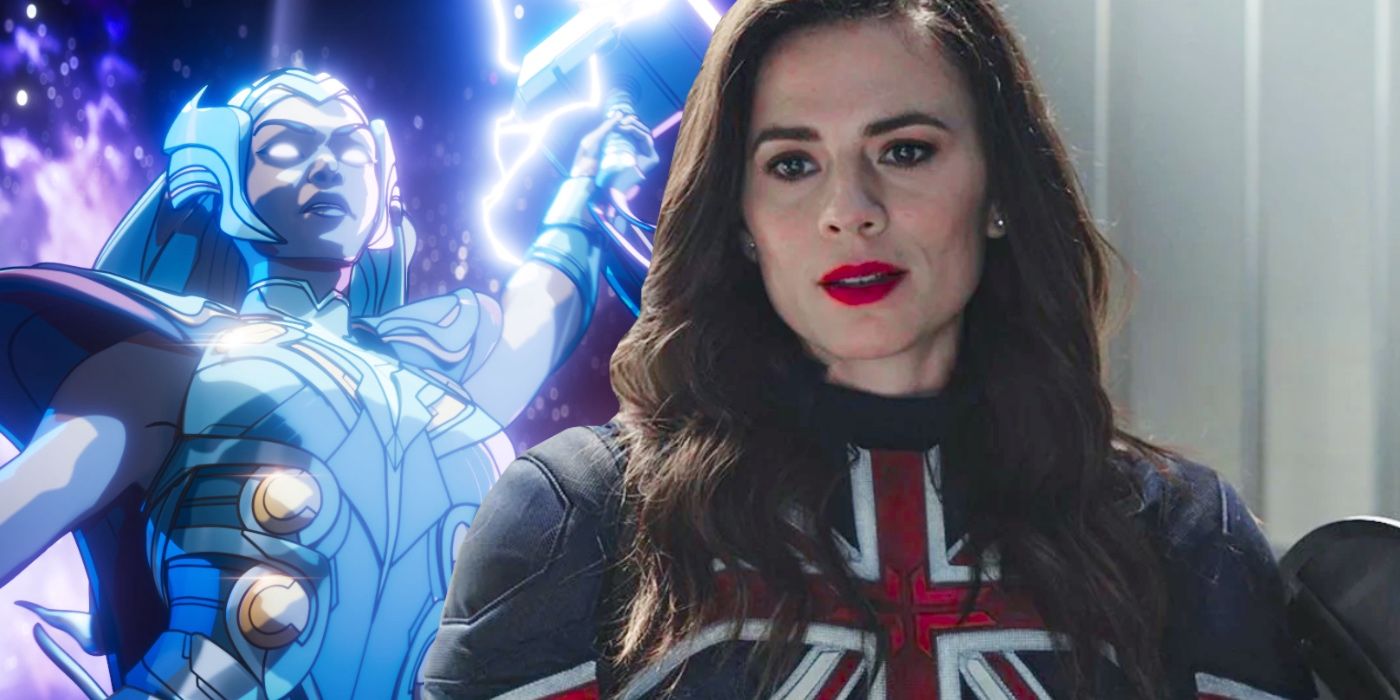


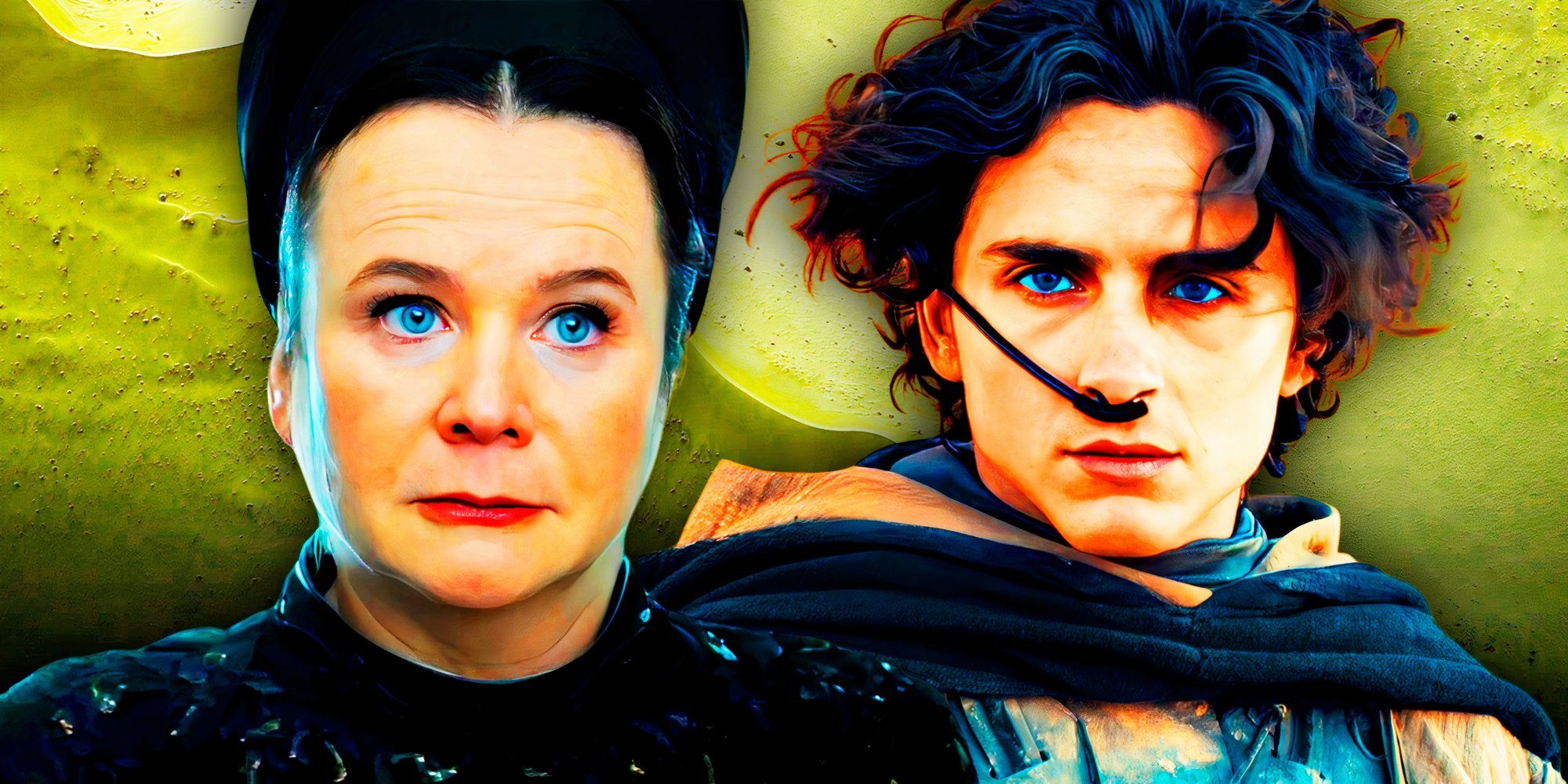


 English (US) ·
English (US) ·